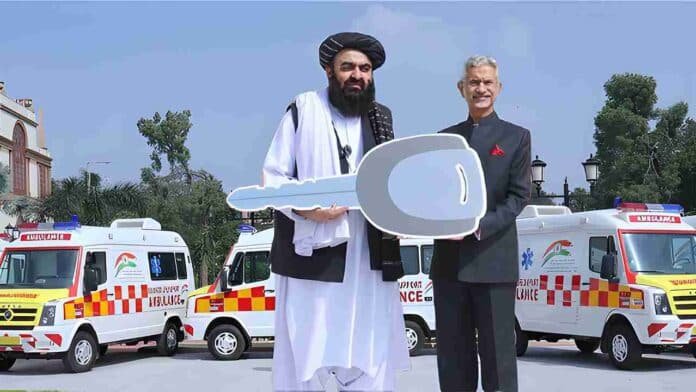Taliban minister meets Jaishankar in first high-level talks since 2021
In a historic meeting, Afghan Foreign Minister Amir Khan Muttaki met Foreign Minister S. Jaishankar in New Delhi, the first top-level talks between India and the Taliban since the takeover in 2021. Muttaki assured India that Afghanistan would not allow any group to use its territory against another country, signaling renewed efforts to build mutual trust and cooperation.
Muttaki calls India a ‘close friend’ and praises its humanitarian assistance
During the talks, Muttaki praised India’s quick response during the recent earthquake in Afghanistan, describing New Delhi as a close friend. He stressed that the Taliban wants relations based on mutual respect, trade and cultural exchange. Muttaki also proposed the creation of a consultative mechanism to strengthen diplomatic dialogue and said his visit would enhance understanding between the two countries.
India to reopen embassy in Kabul after four-year hiatus
In a sign of a major diplomatic shift, Jaishankar announced that India will reopen its embassy in Kabul after four years of closure following the Taliban’s return to power. India had been maintaining a limited technical mission to oversee trade and humanitarian work, but the move upgrades it to a full-fledged embassy. The move aligns India with countries such as China, Russia, Iran and Turkey, which already operate embassies in Afghanistan.
Jaishankar reiterated India’s commitment to Afghanistan’s sovereignty, independence and territorial integrity, saying that closer ties would support both national development and regional stability. No timeframe was given for reopening the embassy, but the announcement underscored India’s desire to deepen ties with the Taliban government amid growing regional dynamics.
Muttaqi’s visit to India came after he was granted a temporary travel waiver from UN sanctions, which include travel bans and asset freezes. His visit follows his participation in the Moscow format meeting in Russia, which was attended by representatives from China, Pakistan, Iran and Central Asian countries. The Delhi visit underscores India’s strategic interest in balancing regional influence and the Taliban’s efforts for international legitimacy.
At a joint briefing, Jaishankar thanked Muttahida for inviting Indian companies to explore mining opportunities in Afghanistan. He stressed that cooperation between the two countries would contribute to regional resilience and growth. Muttaki reiterated Kabul’s position that Afghanistan will never allow its territory to be used for any hostile activity against another nation, highlighting the Taliban’s intention to ease diplomatic concerns.
However, the meeting faced criticism after female journalists were barred from attending a joint press conference – believed to have been requested by the Taliban delegation. The incident has reignited global concerns about women’s rights in Afghanistan, where the Taliban have restricted education and employment opportunities for women and girls since regaining control in 2021.
In July, the International Criminal Court (ICC) issued arrest warrants for two senior Taliban leaders, charging them with gender-based violence against women and girls. The warrants target Supreme Leader Hibatullah Akhundzada and Chief Justice Abdul Hakim Haqqani, reflecting growing international pressure on the Taliban to respect human rights amid ongoing efforts for diplomatic recognition.
During the Taliban’s first rule (1996-2001), India refused to recognize their government and instead supported the anti-Taliban resistance group Northern Alliance. Following the US-led intervention in 2001, India reopened its embassy and became a key development partner, investing more than $3 billion in infrastructure, healthcare and education projects across Afghanistan, strengthening people-to-people ties.
Regional consensus on Afghanistan’s independence and demilitarization
At the recent Moscow Format meeting, India joined regional powers such as Russia, China and Iran in supporting Afghanistan’s independence and non-alignment. The joint statement opposes any foreign military presence, including a possible US return to Bagram Air Base. This unified position highlights the growing consensus among regional countries to maintain Afghanistan’s sovereignty and stability without external interference.

